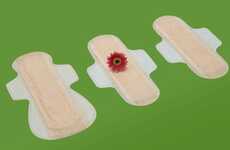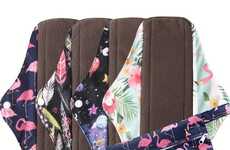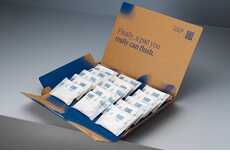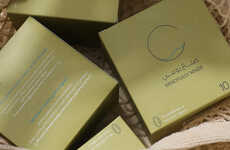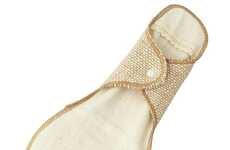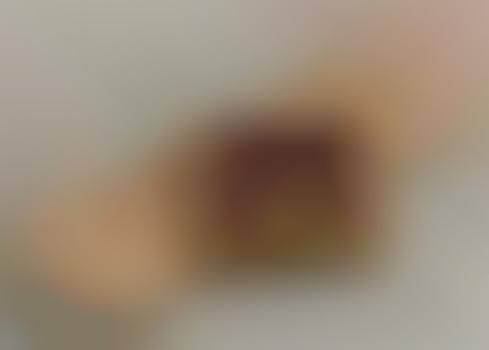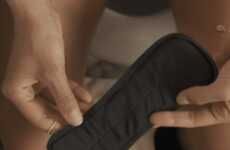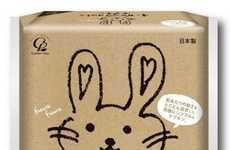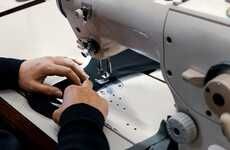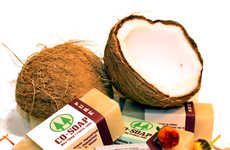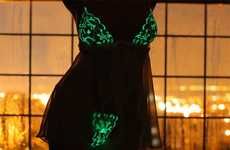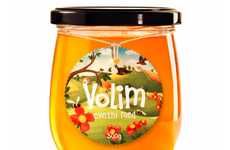Jani Sanitary Pads Solve Many of Nature's Nuisances
Amelia Roblin — March 8, 2011 — Eco
Despite the introduction of reusable products like the DivaCup, women often turn to disposable hygiene alternatives, and Jani Sanitary Pads make this choice equally sustainable.
Made from an invasive population of water hyacinths in Lake Victoria in Kenya, these sanitary napkins clear up fishermen's access to their prey by using the plants to produce useful feminine commodities. The leaves can be woven into paper that has a great capacity for absorbency, and with four layers in total, JaniPads exploit the resource with the greatest effectiveness.
Each layer is given a different texture that allows for flexibility and permeability through perferation. Beeswax is used in conjunction, making these period products entirely organic and gentle on the skin. The best part about Jani Sanitary Pads is that they will soon be packaged and sold at an affordable price, to give underprivileged African girls the protection they need to ensure that menstruation does not mean missing days at school each month.
Made from an invasive population of water hyacinths in Lake Victoria in Kenya, these sanitary napkins clear up fishermen's access to their prey by using the plants to produce useful feminine commodities. The leaves can be woven into paper that has a great capacity for absorbency, and with four layers in total, JaniPads exploit the resource with the greatest effectiveness.
Each layer is given a different texture that allows for flexibility and permeability through perferation. Beeswax is used in conjunction, making these period products entirely organic and gentle on the skin. The best part about Jani Sanitary Pads is that they will soon be packaged and sold at an affordable price, to give underprivileged African girls the protection they need to ensure that menstruation does not mean missing days at school each month.
Trend Themes
1. Sustainable Feminine Hygiene - Jani Sanitary Pads demonstrate the potential for innovative and eco-friendly menstrual products.
2. Organic Period Products - The use of beeswax in JaniPads showcases an opportunity for natural and skin-friendly menstrual options.
3. Socially Responsible Menstrual Products - Jani Sanitary Pads' affordable price and dedication to providing girls with access to feminine hygiene indicate the emergence of products with a social mission.
Industry Implications
1. Feminine Hygiene - JaniPads' innovation in menstrual products embodies a potential avenue for sustainable and socially responsible advancement in this industry.
2. Eco-friendly Products - The intersection of eco-friendliness and practicality in menstrual products, as exhibited by JaniPads, presents opportunity for sustainable advancement in broader industries with similar objectives.
3. Social Enterprise - Jani Sanitary Pads' commitment to affordability and social responsibility in their product design suggests a trend in social enterprise and opportunity to align business with greater social purpose.
3
Score
Popularity
Activity
Freshness
